In the war-torn territory of modern gender discourse, there are few battlegrounds as emotionally charged and ideologically fragmented as dating. On one side: feminists calling for equity, autonomy, and emotional intelligence. On the other hand, the manosphere advocates for tradition, hierarchy, and masculine self-preservation.
Their conflict plays out daily, on podcasts, on comment threads, in swipe behaviour, and in the quiet fatigue of millions seeking connection but finding only confusion.
But what if a new kind of dating platform could serve not as another ideological echo chamber, but as a functional bridge? What if, instead of deepening division, it offered a relational grammar where both camps could coexist, thrive, and even grow?
Let’s explore how.
First, Acknowledge the Frustration
Both feminism and the manosphere emerged from disappointment with the existing relational order:
- Feminism was (and is) a response to patriarchy, emotional labour imbalances, and institutional constraints on women’s freedom.
- The manosphere is, in many ways, a backlash to feminism’s victories, driven by men who feel disempowered, invisible, or judged for pursuing traditional roles.
The problem isn’t that these viewpoints exist.
The problem is that we lack relational infrastructures where these views can interface without dehumanising one another.
Enter: the new generation of dating platforms, not swiping apps, but social commitment systems.
The Platform as Protocol, Not Performance
Most dating apps today force people into performance: perfect bios, glam shots, curated values.
A next-gen dating platform must be:
- Transparent but non-performative
- Identity-structured, not identity-politicised
- Flexible in roles, but anchored in relational clarity
How?
By letting users self-design their relationship blueprints.
Let Archetypes Replace Gender Wars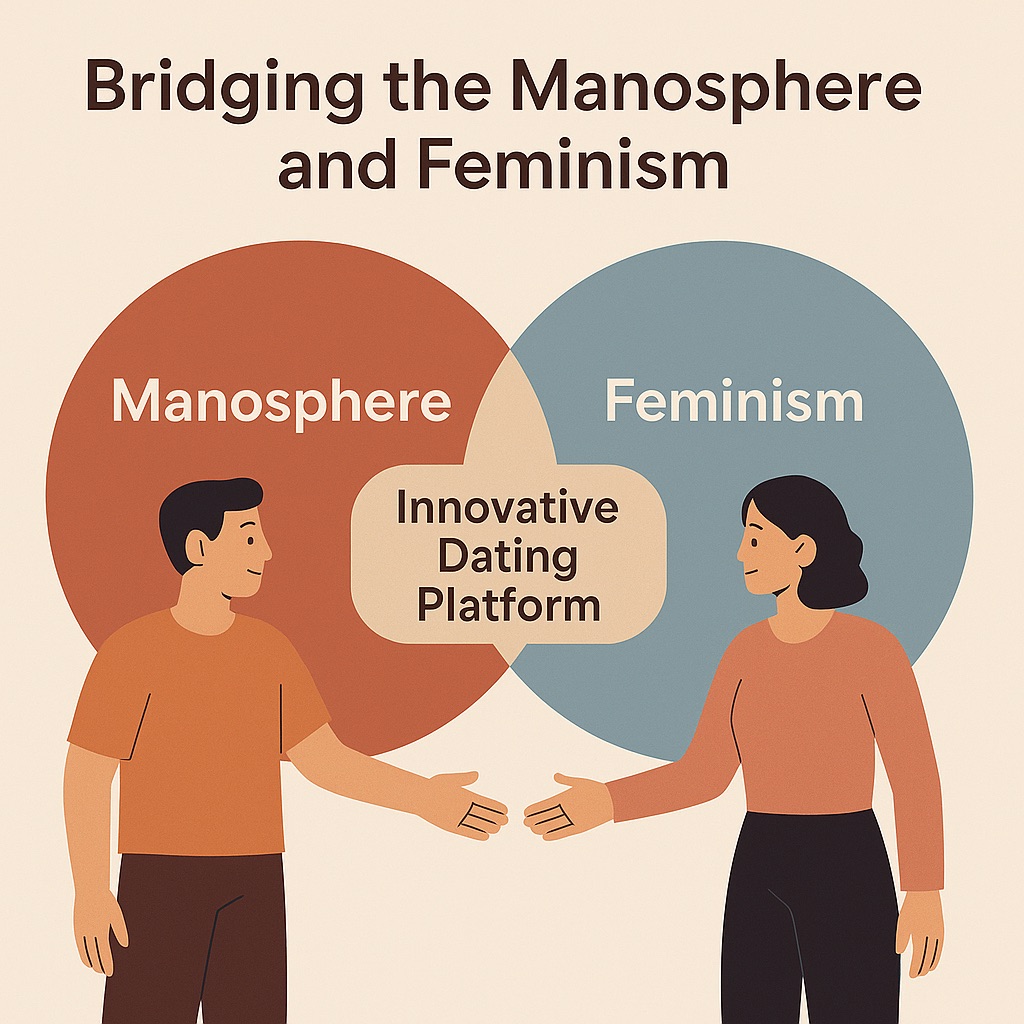
Instead of saying “I’m a feminist” or “I’m red-pilled,” users could select from universal relational archetypes:
- Caregiver
- Breadwinner
- Protector
- Adventurer
- Home-maker
- Thinker
- Lover
- Mentor
These roles transcend ideology. A feminist and a manosphere follower might both identify as “Protector” or “Builder.” Their values might differ, but their relational intent overlaps.
In this model:
- Compatibility becomes function-based, not belief-based
- You don’t debate roles, you declare yours
- You don’t prove worth, you align with clarity
Reputation over Rhetoric
Instead of judging users by profile claims (“feminist,” “alpha male,” “tradwife”), the platform can emphasize earned reputation:
- Is this person consistent?
- Do they respect boundaries?
- Do they follow through on relational contracts?
This shifts the energy from ideology to integrity.
In such a system, feminism’s call for safety and accountability meets the manosphere’s call for structure and order, but through behaviour, not slogans.
Intent-Based Dating Zones
A shared platform doesn’t mean a shared experience.
A powerful innovation: Zone-based dating architecture:
- Zones for casual dating
- Zones for long-term bonding
- Zones for co-parenting
- Zones for community-based living
- Zones for ROCCA-style trial commitments
Each user chooses their relational intent first, and is matched only within compatible value pools.
This allows:
- Feminist women to avoid being approached by domination-based men
- Traditional men to connect with women seeking defined masculine roles
- Poly, queer, and exploratory users to find freedom without friction
One platform.
Multiple micro-cultures.
Zero ideological warfare.
Data-Driven Dating, Not Dogma-Driven Dating
Instead of feeding users confirmation bias, this platform could offer:
- Feedback loops on communication style
- Behavioural insights (e.g., who responds best to your archetype?)
- Data on what actually builds long-term connection
This breaks the loop of “all women do this” or “all men want that.”
The truth isn’t in the manosphere or feminist think pieces — it’s in relational data, reflected back with care.
Toward a New Relational Culture in Dating
The reality is:
Most people are not as polarized as the internet suggests.
Most men, including “manosphere types,” still want:
- Respect
- Love
- Stability
- Legacy
Most women, including feminists, still want:
- Safety
- Respect
- Shared effort
- Long-term growth
They want different mechanisms to achieve it.
But they share the same yearning.
An emotionally intelligent dating platform, one that offers identity scaffolding, value-aligned zones, reputation tracking, and intent clarity, doesn’t erase their differences.
It organizes them into useful architecture.
Final Thought: Build the Table Before the Debate
Bridging the manosphere and feminism isn’t about compromise.
It’s about creating a platform that holds both, without collapsing under their disagreement.
It means building a dating ecosystem where:
- Masculinity is honoured without control
- Femininity is respected without fragility
- Intention is visible
- Integrity is measurable
- Identity is self-authored
Because the future isn’t swipe-left or swipe-right.
The future is opt-in clarity.
And the only war that ends well…
Is the one replaced by systems that work better than fighting?
Read More Blogs:
Can Dating Platforms Ever Be Bigger Than Social Networks?
Why Women Keep Returning to Dating Apps — Even After Leaving in Despair
The Fragmentation of Love, Identity, and Human Significance in the Digital Age
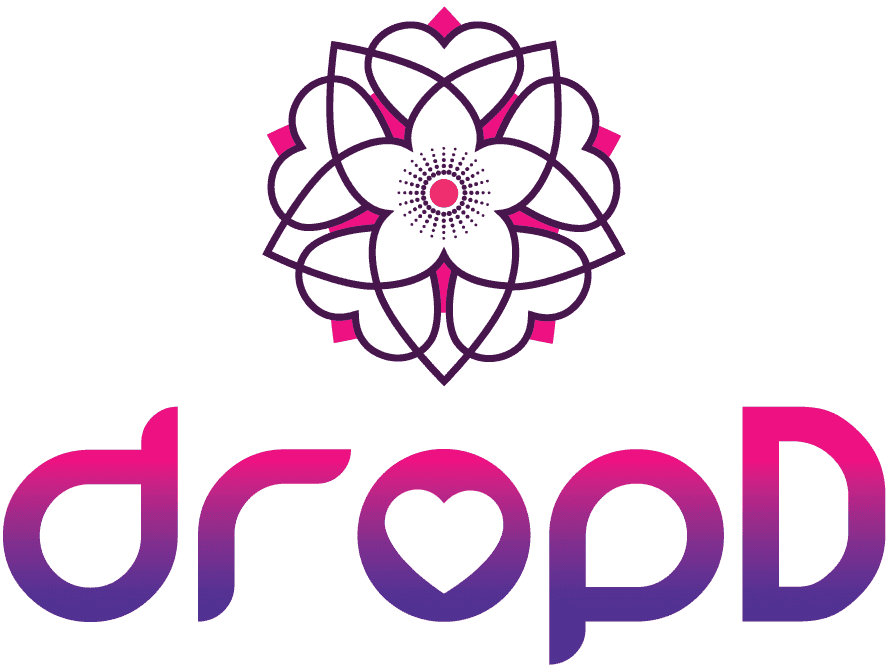
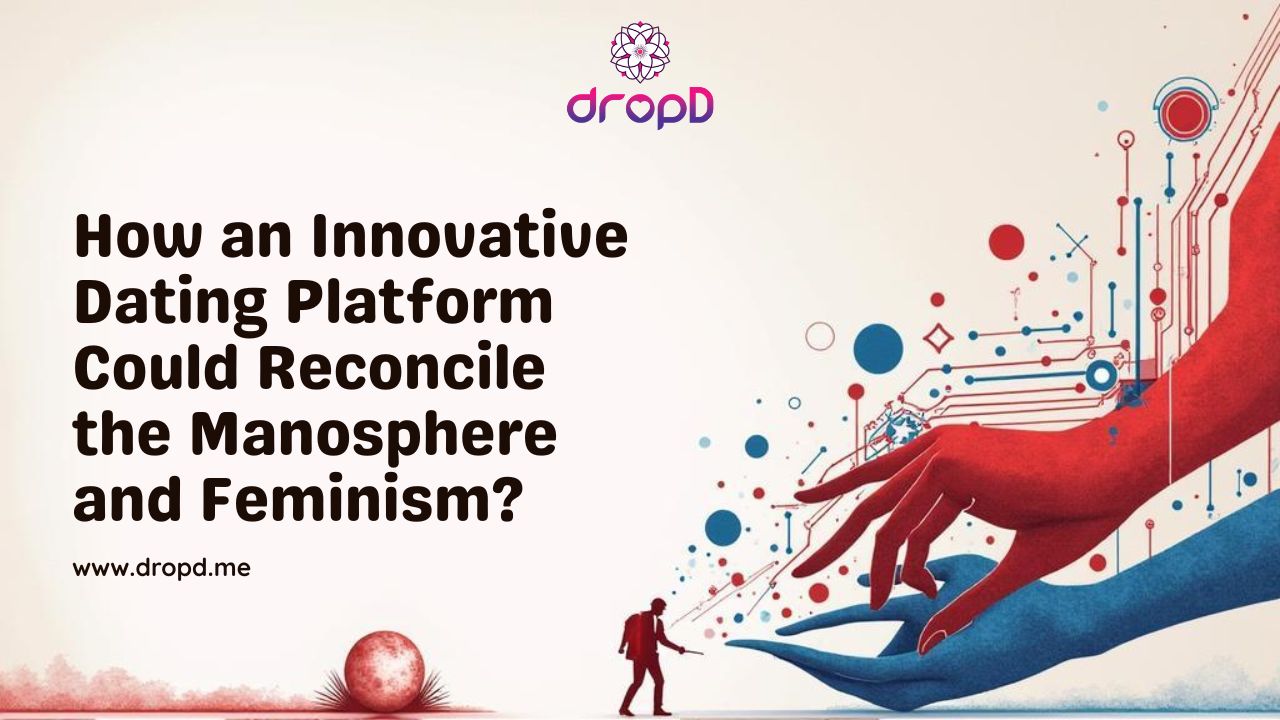
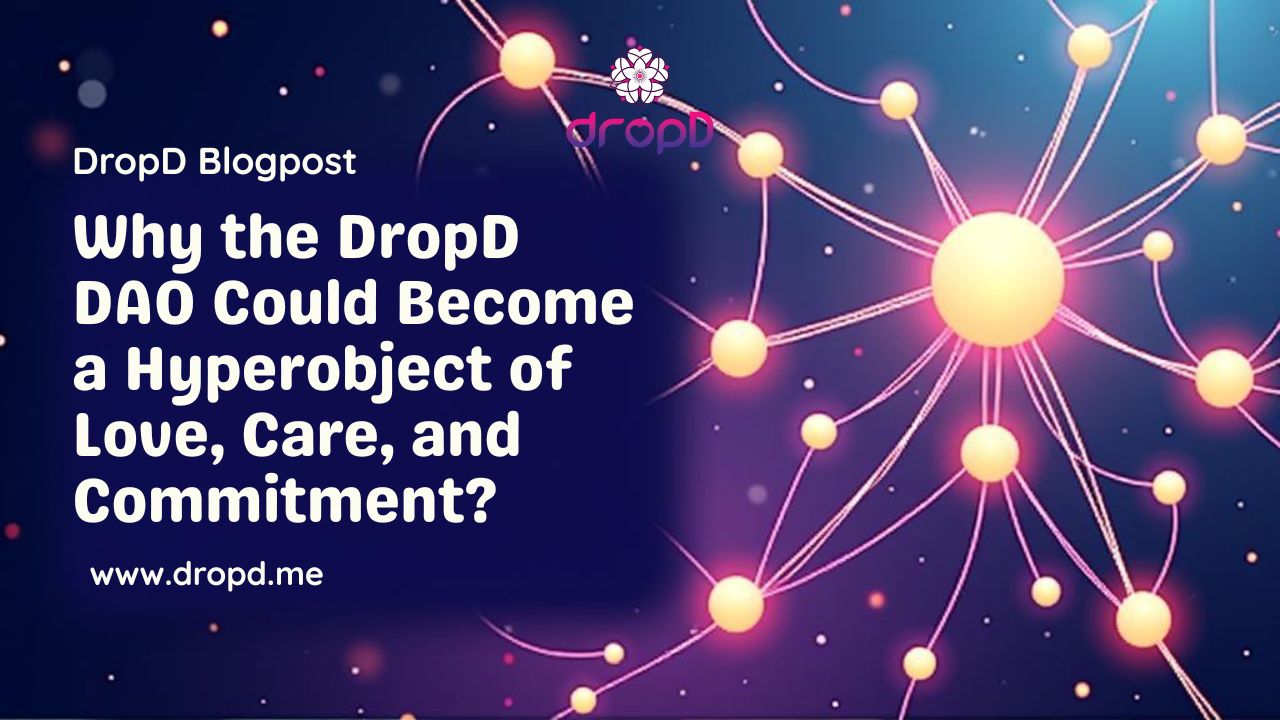
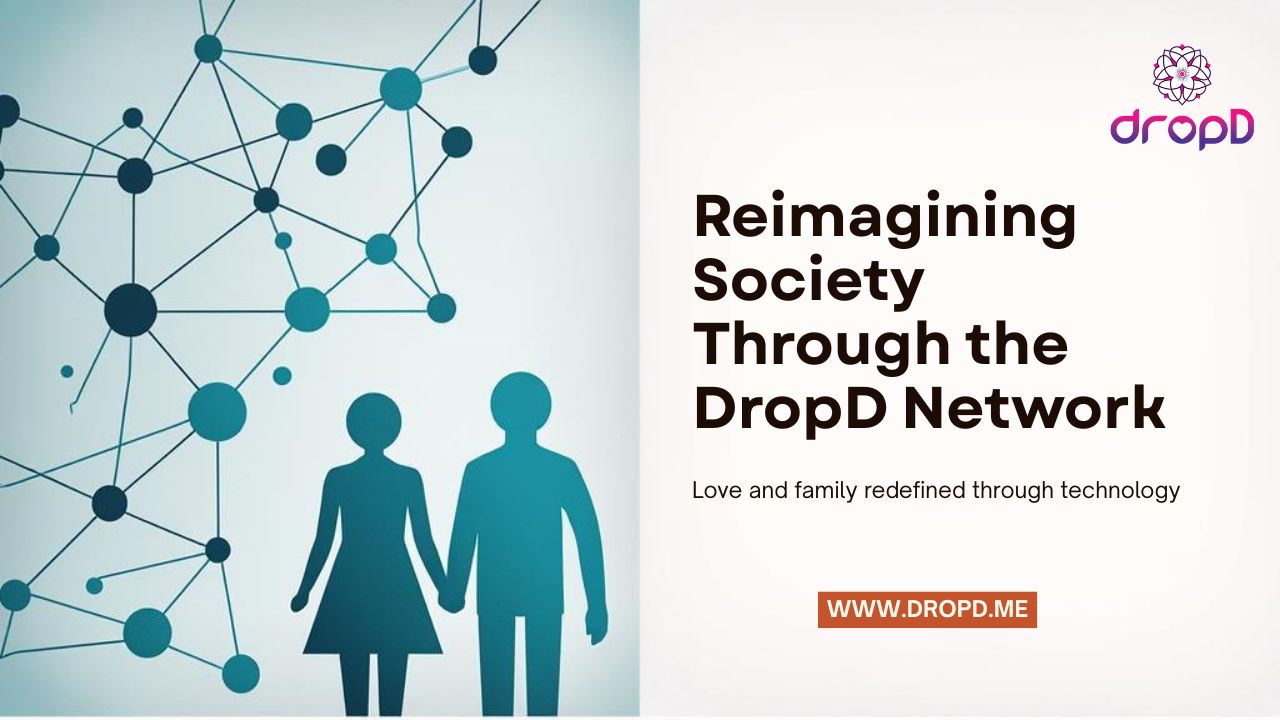
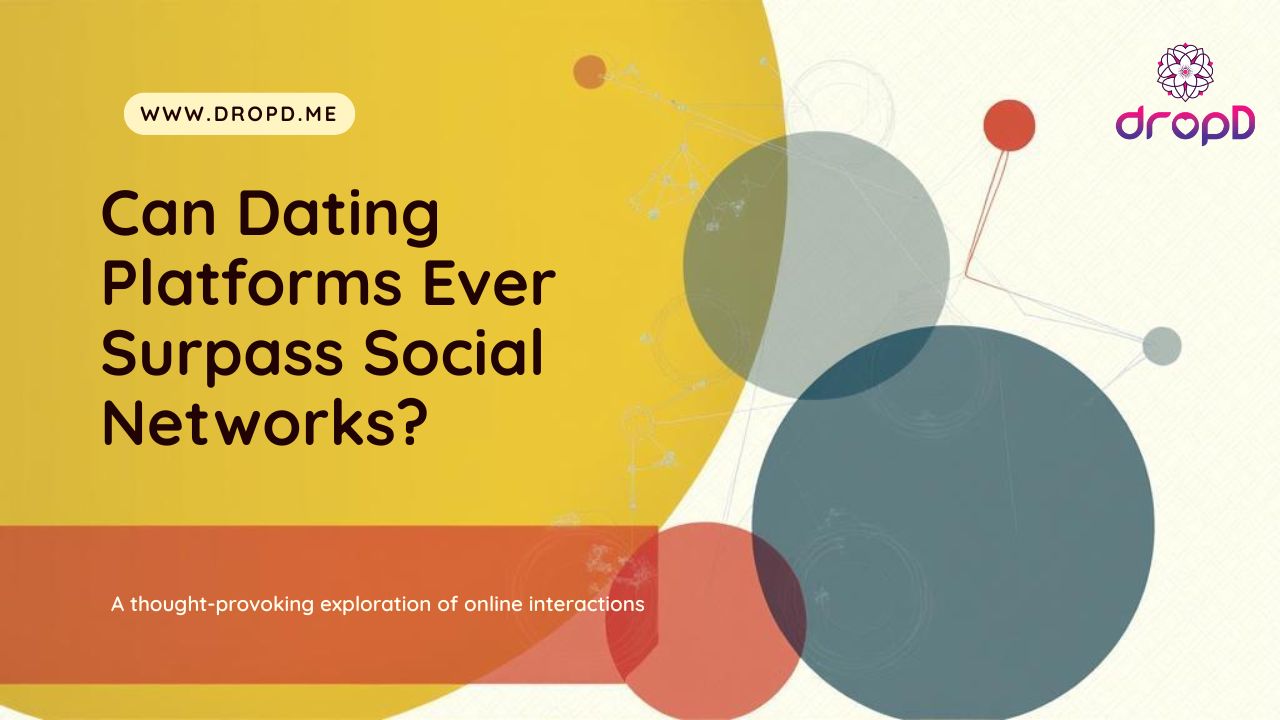
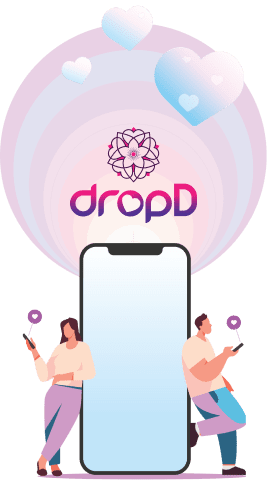
1 comment(s)
Melanie Bush
Spy-loop helped me monitor my husband's phone when I was gathering evidence during the divorce. I got virtually every information he has been hiding over […] Read MoreSpy-loop helped me monitor my husband's phone when I was gathering evidence during the divorce. I got virtually every information he has been hiding over a year easily on my own phone: the spy app diverted all his Whatsapp, Facebook, text messages, sent and received through the phone: I also got his phone calls and deleted messages. he could not believe his eyes when he saw the evidence because he had no idea that he was hacked. he can also improve dept on credit cards i strongly recommend hacksecrete @ gmail . comCall/text or whatsapp on +1 (774) 202-9445. you can also reach him if you're not able to withdraw your funds from any online trading platform like expert-option, Cal Financial, Analyst, Coinspot, Ctxprime and many more Read Less